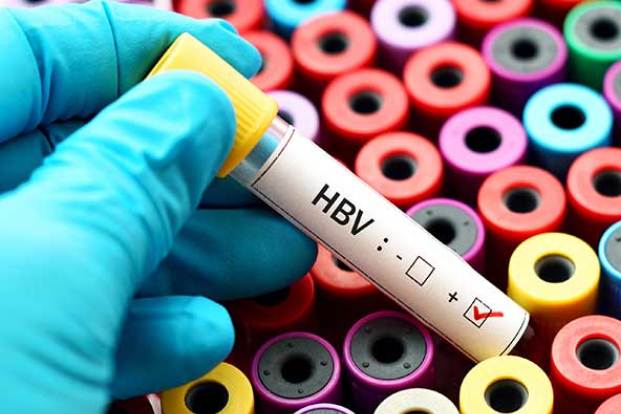Categories
- Bariatric Surgery (11)
- Black Fungus (5)
- Bone Marrow transplant (3)
- Brain Tumor Surgery Navigation Technology (20)
- Cardiac Surgery (66)
- Cardiology (97)
- Computer navigation technology for joint replacements (20)
- Covid Vaccination (17)
- Critical Care (2)
- Dental (19)
- Dermatology (31)
- Dialysis Support Group - “UTSAAH” (11)
- Dietitian (33)
- Emergency Medicine (4)
- Emotional Health (11)
- Endocrinology (33)
- ENT (20)
- Gastroenterology and GI Surgery (53)
- General and Laparoscopic Surgery (21)
- General Surgery (4)
- Gynecology & Obstetrics (183)
- Hematology (20)
- Internal Medicine (294)
- Kidney Transplant (50)
- Kidney Transplantation (20)
- Lung Cancer (8)
- Minimal Invasive Surgery (1)
- Mother & Child (20)
- mucormycosis (5)
- Nephrology (61)
- Neurology (147)
- Neurosurgery (68)
- Nutrition and Dietetics (107)
- Omicron Variant (1)
- Oncology (288)
- Ophthalmology (10)
- Orthopaedics & Joint Replacement (86)
- Paediatrics (59)
- Pediatric Nephrology (3)
- Physiotherapy (5)
- Plastic & Reconstructive Surgery (6)
- Psychiatry and Psychology (90)
- Psychologist (28)
- Pulmonology (72)
- Rheumatology (13)
- Spine Services (21)
- Transradial Angioplasty (16)
- Urology (84)
Query Form
Posted on Apr 19, 2022
Treatment of Diarrhoea: Basic Issues
Diarrhoea in adults is a common every-day condition all over the world. Besides acute infectious diarrhoea, the defination also includes many intestinal conditions that may present as diarrhoea. In general, the diarrhoea can be classified into watery diarrhoea and bloody diarrhoea by their gross stool appearance. The watery diarrhoea is managed by rehydration therapy with or without antidiarrheals. The bloody diarrhoea subgroup is treated with antibiotics either empirically or after stool examination and culture. Further investigations are essential if the patient does not get better. Diarrhoea not responding to conventional therapy particularly when associated with features of malabsorption or other systemic symptoms may require special considerations and referral to an expert gastroenterologist.

The basic considerations in the management of diarrhoea include the followings:
Rehydration is key for Diarrhoea treatment:
An important aspect of treatment of diarrhoea is to ensure that fluid and electrolyte deficits are replenished with an oral rehydration solution or intravenous fluid. Most cases of diarrhoea resolve spontaneously within a few days and all that is needed is preventing dehydration. Orally ingested saline solutions that contain glucose or amino acids are used, as nutrient absorption accelerates sodium and fluid absorption in the small intestine. Although the earliest oral rehydration solutions used glucose to accelerate sodium absorption, cereal-based oral rehydration solutions are now believed to be superior. Use of oral rehydration solutions is avoided in patients who are vomiting frequently.
Empiric anti-microbial therapy
Use of antibiotics for community-acquired diarrhoea should be discouraged as epidemiological studies suggest that most community-acquired diarrhoea is not shortened by the use of antibiotics. However, empirical trials of antibiotic therapy are considered if the prevalence of bacterial or protozoal infection is high in a community or in a specific situation. Empirical antibiotic therapy also is often used for more severely ill patients. In traveller’s diarrhoea, the likelihood of bacterial pathogens is high enough to justify the use of antibiotics. Generally, empirical antibiotic therapy is less useful for chronic diarrhoea than for acute diarrhoea, because bacterial infection is far less likely to be the cause. The evidence is strong for anti-microbial treatment of specific parasitic causes of diarrheal infection such as infection with giardia, Entameba histolytica or Cryptosporidiosis, wherein metronidazole, tinidazole, or nitazoxanide etc can be considered.
Nonspecific antidiarrheal agents
Nonspecific antidiarrheal agents can reduce stool frequency and stool weight and can reduce coexisting symptoms, such as abdominal cramps. Opiates, such as loperamide and diphenoxylate with atropine, frequently are employed. A therapeutic trial of pancreatic enzyme replacement and conjugated bile acid supplementation in patients with unexplained diarrhoea with steatorrhea may be helpful. The somatostatin analog octreotide has been shown to improve diarrhoea caused by endocrinopathies, dumping syndrome, and HIV. Clonidine, an α-adrenergic agent that has effects on both motility and intestinal transport, may be considered in diabetic diarrhea. Stool-modifying agents such as psyllium that alter stool consistency can be used in patients with coexisting fecal incontinence.
Diet during diarrhoea :
It used to be advised to not eat for a while if one had diarrhoea. But, now it is advised to eat small, light meals if one can. Soft, bland foods including bananas, plain rice, and yogurt can be recommended. Milk, caffeine, alcohol, fatty, high-fiber diet, apple and pear juices, because they may worsen diarrhoea should be avoided.



